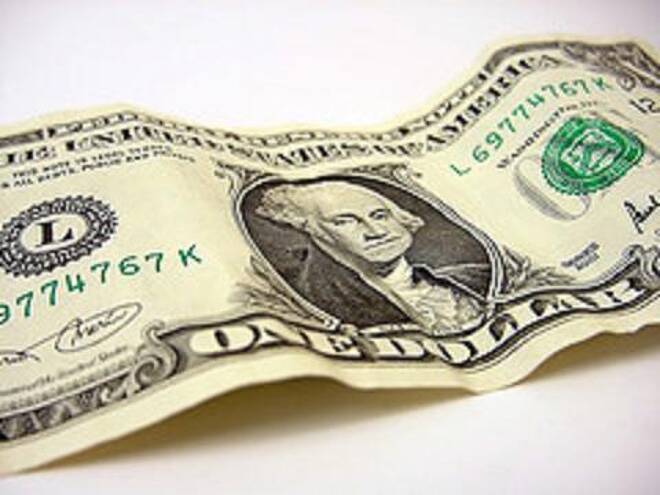Advertisement
Advertisement
Is The US Dollar Recovering Or Rallying?
By:
The US dollar recovered late in Tuesday’s session and remains in the green on Wednesday morning as Asian traders sell off safe haven assets such as gold.
The euro continued its tumble this morning giving up 22 points to trade at 1.2635. Economic
weakness in Europe, slowing growth in China and tensions in the Middle East sparked a $3.5 trillion loss in value for global equities through last week since a record in September. Earlier in the day data from across Europe printed in the red. Fears over faltering global growth triggered a bruising selloff in global equity markets in the past week, and investors remain reluctant to buy into riskier assets as the drumbeat of weak data showed no signs of abating. A closely watched ZEW survey showed German analyst and investor morale fell below zero for the first time in nearly two years in October. Adding to the gloom, the German government cut its growth forecasts, euro zone industrial production fell, British inflation slowed sharply in September and Fitch warned it may cut France’s credit rating.
The Great British Pound took cues from the global markets as well as lackluster inflation data. The pound eased this morning by 12 points to trade at 1.5891 touching its lowest point in weeks. The rate of consumer inflation dropped to 1.2pc from 1.5pc in August, the Office for National Statistics said yesterday. That’s the lowest since September 2009. Sterling fell to a one-month low against the euro and headed towards its lowest against the dollar since last November, pushing back expectations of a rise in UK interest rates well into 2015.
This morning in the Asian session the Aussie and the kiwi declined against the stronger US dollar and lackluster Chinese inflation data which printed below expectations. The Aussie is trading at 0.8709 while the kiwi touched 0.7826. The Japanese yen dipped as the pair touched 107.10. Growing public criticism of the yen’s recent weakness means the BOJ can’t stick to its current plan to reach 2 percent inflation. The bank will probably slash its forecast for the economy’s expansion for the current fiscal year through March while maintaining its inflation projection. The BOJ could declare its victory against deflation by the end of the year, when consumer prices gains will begin to pick up again and the economy will show signs of shaking off recent weakness.
About the Author
Barry Normanauthor
Advertisement
